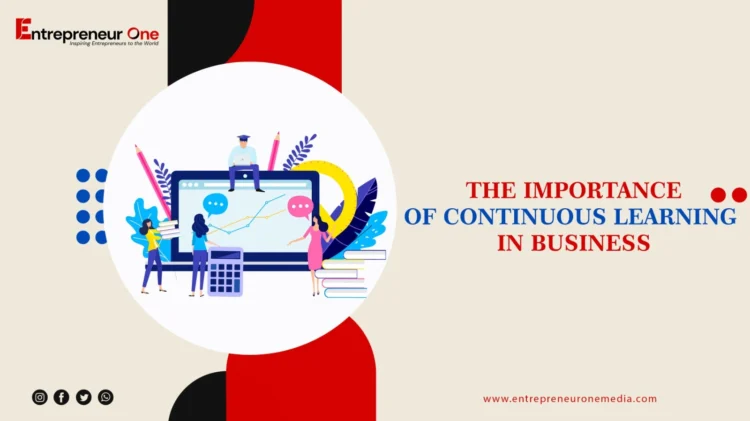In the dynamic and ever-evolving landscape of modern business, continuous learning has emerged as a critical factor for success. No longer confined to traditional classroom settings or periodic professional development courses, learning in the business world is now a constant, ongoing process. It is not just about acquiring new knowledge; it’s about adapting to changes, staying competitive, and ensuring long-term success. The rapid evolution of technology, shifting market trends, and increasing competition demand that businesses and professionals stay ahead of the curve to remain relevant. Continuous learning is the key to unlocking innovation, driving growth, and achieving success in the modern business world.
WHY CONTINUOUS LEARNING MATTERS?
The business environment is constantly changing, with new challenges and opportunities emerging every day. Continuous learning enables businesses to adapt quickly to these changes, making them more agile and responsive to market demands. It also helps professionals develop new skills, expand their knowledge, and stay up-to-date with industry trends, ensuring they remain valuable assets to their organizations.Moreover, continuous learning fosters a culture of innovation, encouraging experimentation, creativity, and risk-taking. By embracing continuous learning, businesses can develop new products, services, and processes that drive growth and differentSTRATEGIES FOR IMPLEMENTING CONTINUOUS LEARNING
- Online Courses and Webinars: Utilize online platforms to access courses, webinars, and tutorials on various business topics.
- Mentorship Programs: Pair experienced professionals with newer employees for guidance, support, and knowledge sharing.
- Industry Events and Conferences: Attend industry events, conferences, and trade shows to network, learn, and stay updated on industry trends.
- Book Clubs and Reading Lists: Establish book clubs or reading lists to encourage reading, discussion, and knowledge sharing.
- Cross-Functional Training: Provide training and development opportunities across departments to foster collaboration and knowledge sharing.
BENEFITS OF CONTINUOUS LEARNING
- Improved Performance: Continuous learning enhances skills, knowledge, and expertise, leading to improved job performance and productivity.
- Increased Innovation: Continuous learning encourages creativity, experimentation, and innovation, driving business growth and differentiation.
- Better Decision Making: Continuous learning provides access to new information, insights, and perspectives, enabling better decision-making.
- Enhanced Competitiveness: Continuous learning helps businesses stay ahead of the competition, adapting to changing market conditions and customer needs.
- Talent Attraction and Retention: Continuous learning opportunities attract top talent and retain existing employees, reducing turnover and recruitment costs.
SCOPE OF CONTINUOUS LEARNING
Now that we know about the importance of continuous learning let us look at certain aspects where continuous learning plays a major role :FOSTERING INNOVATION AND CREATIVITY
ADAPTING TO TECHNOLOGICAL ADVANCEMENTS
NAVIGATING UNCERTAINTY AND CHANGE














